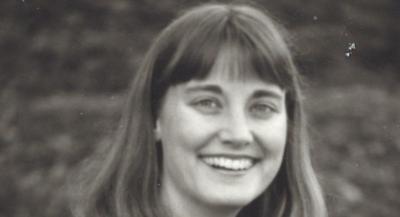There is a disturbing trend among books that are being not only published but touted as “books that need to be read.”
Among these releases are an uncomfortable number of books by known and unknown authors whose focus is on telling stories that bring to light stark divisions within families (which has been a focus for as long as man has put pen to paper, although not to this seeming number).
The reasons for these divisions are myriad: infidelity; addiction; financial collapse; mental health issues; racial tensions; the melding of one ethnicity to another; abortion; and, most certainly, political differences and climate change.
Chronicling dysfunctional families in literature is not a new concept, but the past few years have introduced works that come much too close to those unpleasantries continuing rather than being faced, dealt with and set right. Pat Conroy’s classic and timeless "The Prince of Tides" is one of the best examples of a family making it through the atrocities that life handed them and finding ways to move past them.
Perhaps one of the first works of fiction I read that I recognized this growing unease was with Lydia Millet’s "A Children’s Bible," Sarah Winman’s "Tin Man" and Laird Hunt’s "Zorrie and Hanya Yanagihara’s A Little Life." And then there was Charlotte McConaghy’s "Once There Were Wolves." Hernan Diaz’s "Trust" still echoes in my mind — often. And the list would not, could not be complete without mentioning Barbara Kingsolver’s "Demon Copperhead."
I don’t remember a time when I wasn’t reading a book or two or three. I remember walking to the public library in St. Louis and in Memphis, as a child. I remember waiting for the Fayette County Bookmobile to arrive in Charlton Heights, when my family moved there when I was 11 years old. I remember the Main Reading Room at the New York Public Library. I remember loving every single one (OK, maybe there was one exception) of my English teachers at every level of my education.
And I remember my English 101 professor at West Virginia University, who wrote on one of my essays: “Your jovial style has, once again, saved the day.”
Every time I begin a story or a commentary, those words continue to inspire me. And my letter from Harper Lee, written when I wrote to her asking for advice for my ÂŇÂ×ÄÚÉä Catholic High School creative writing students in the summer of 1995, said, “If you want to write, WRITE. Writing is a craft you can only master by doing.” Those words continue to encourage me to keep writing.
What I find concerning as I scroll through my own social media grid that highlights my reading adventures since joining in 2018 is the change (whether it’s been welcomed or not) in such a short time from books that enlightened to books that do the opposite.
Until recently, most books that I read imparted a different world view that not only encouraged me to think in a different way but invited me to write stories that found a way to bridge what divides us rather than creating an even wider chasm. The shift that I've seen could very well be why I’m finding — for the first time in my life — myself unable to finish a book long before "THE END" appears.
And as I recall my incredible time spent learning the craft of writing at the Iowa Writers’ Summer Workshop and the Sewanee Writers’ Workshop, I am reminded of my very first creative writing class with Pinckney Benedict.
He set out to explain that no one wants to read a story about a boy and a girl who grow up in an idyllic setting, surrounded by family and friends who never miss a beat and who eventually fall in love, get married and have children whose lives imitate their own idyllic years.
And while we all tended to agree with him, I yearn — deeply yearn — for a story that paints that very picture, if only so that we can leave behind (even if only briefly) all that troubles us and find a few moments when, indeed, the world was very, very good, when what connected us brought us closer together. When our differences strengthened us, not weakened us. When we learned more and achieved more by solving our problems, not by sweeping them under the rug, hoping that by some sprinkling of a fine magical dust that all would be restored simply because we wanted it to happen.
It takes a bit more than merely believing that something will happen for it to actually happen — so very much more.











